#sehzade osman i
Explore tagged Tumblr posts
Text
This Silver Kraftan Costume is worn in Magnificent Century Season 4 Episode 3 (2013) on Engin Öztürk as Sehzade Selim and worn in Magnificent Century: Kosem two times, First worn on Taner Ölmez as Osman I in Season 1 Episode 24 (2016) and worn again later on Metin Akdülger as Sultan Murad 4 in Season 2 (2017)



#recycled costumes#magnificent century#muhteşem yüzyıl#magnificent century kösem#Muhteşem Yüzyıl: Kösem#sehzade selim#sehzade osman i#sultan murad iv#costume drama#historical drama#reused costume#reused costumes#dramasource#drama series#source: historicalreusedcostumes
4 notes
·
View notes
Text





This kaftan was first worn by Şehzade Mustafa (later Sultan Mustafa I) in the first episode of the first season of Magnificent Century: Kösem. It was altered by adding gold trim before it was worn again by Şehzade Bayezid in the twenty-seventh episode of the same season. The kaftan was used twice in the second season, first on Şehzade Ahmed in the second episode and then on Şehzade Osman in the twenty-seventh episode.
The kaftan also appeared in the fourth episode of Golden Apple: The Grand Conquest where it was worn during a flashback by Şehzade Mehmed (later Sultan Mehmed II).
#Muhteşem Yüzyıl: Kösem#Magnificent Century Kösem#Magnificent Century Kosem#Kızılelma: Bir Fetih Öyküsü#Golden Apple: The Grand Conquest#costume drama#period drama#historical drama#Mustafa I#Şehzade Mustafa#Sehzade Mustafa#Şehzade Mustafa (Son of Halime)#Şehzade Bayezid#Sehzade Bayezid#Şehzade Bayezid (Son of Gülbahar)#Şehzade Ahmed#Sehzade Ahmed#Şehzade Ahmed (Son of Ayşe)#Şehzade Osman#Sehzade Osman#Şehzade Osman (Son of Zarife)#Şehzade Mehmed#Sehzade Mehmed#Mehmed II#Şehzade Mehmed (Son of Hüma)#reused costumes#recycled costumes
13 notes
·
View notes
Text
The Tragedy of Bayezid in Kösem season 2
It's time to share my thoughts on the tragedy of my favorite Sehzade.
From the very beginning, Bayezid’s position is difficult. After Osman’s death, he is the only remaining children of the dynasty who is not Kösem’s biological child. Unlike Osman, who lost his mother as a baby and never knew her, Bayezid had been raised by his mother, Gülbahar, for around eight years before she was exiled for plotting a coup, which was likely true but Kosem lacked convincing evidence when she condemned her so Bayezid could easily believe it was all fake. During all those years, Bayezid lived without her, growing up under Kosem with her children, yet never truly belonged.
Kösem insists that she always treated Bayezid as her own son, but her actions tell another story. Even before she knew about Gülbahar’s return, she already viewed him with suspicion, warning her allies to "keep an eye on him." The moment he makes one mistake—revealing Kasım’s secret to his mother in a desperate attempt to keep her in Istanbul—she discards him, telling him that they stand together for the last time, when she would forgive her real children for similar things (like Atike’s action leading to Gevrehan for example). And every time they interacted with each other, even in their first scene, you can tell there’s a distance between them.
We can also see that he never truly belongs with his siblings as well. He is conspicuously absent from significant family moments, even in the beginning, we see he is not there when all the siblings (except Murad of course) gather to comfort Gevherhan after Murad executed her husband. Throughout the series, his estrangement with them grows larger and larger and he shares fewer and fewer scenes with them (he’s notably completely absent at Atike’s wedding).
Among his siblings, Kasım is his most relentless adversary. From the start, he resents Bayezid’s closeness to Murad and the Janissaries’ acclaim for him as heir. His jealousy is palpable, driving him to attack Bayezid unprovoked (when he accused him of being happy Murad ended Kosem’s regency out of nowhere) and he always runs to Kösem with any information that might cast him in a bad light. And he did those things before Bayezid betrayed his secret.
Bayezid’s fatal mistake—sharing Kasım’s secret with Gülbahar—was an act of naivety and desperation, as Gulbahar was going to be sent back into exile and she told him Kosem was going to have her killed on the road. He never imagined it would escalate to Murad locking Kasım away with their deranged uncle, an excessive punishment considering the relatively minor nature of the offense (Murad had never even had contact with Esmanur before). But the consequences are dire: Kösem grows even colder toward him, Kasım becomes his sworn enemy, and Bayezid is left drowning in guilt.
One of the saddest things about Bayezid is that he is caught between two loyalties, two families: his siblings and Kosem on one side, and his mother on the other. But honestly, his mother is the only one who displays unconditional love towards him. Kosem never truly saw him as a son, Murad is too busy asserting his authority and doing whatever with Farya and is becoming more cruel and emotionally distant by the hour, Kasim hates him, Ibrahim turns his back on him after his mistake, he is not close with either of his sisters. It’s no wonder he is so attached to his mother, especially since her absence was like a hole inside him for so long.
Also while Gülbahar displays unconditional love for him and I do believe she loved him, she also manipulates him emotionally a lot (feigning illnesses) and treats him as a pawn in her power plays. Because while it’s true she wants to enthrone him to ensure his safety and she has a point, she is also power-hungry. That much is clear when upon hearing that the secret Jesuit cult has chosen a future Grand Vizier for Bayezid’s reign, she indignantly declares, “How dare they? Only I choose the Grand Vizier.” Her, not her son the sultan would have the true power in her dreams.
Bayezid, however, is not a willing usurper. He loves his brother and wants to be loyal to him (poor boy). He tries to dissuade her from conspiring, but he cannot bring himself to betray her, nor can he let go of the hope that they can simply be mother and son. And then things just keep on escalating, with Gülbahar’s plans culminating in the Great Fire of Istanbul and then a triple murder attempt on Murad, Kasim, and Ibrahim.
Gülbahar’s treachery is exposed, and I don’t think it was unfair to condemn her to death, her role in the Great Fire of Istanbul caused countless deaths and widespread suffering, but to Bayezid, she is his mother, the person he loves the most in the world and for whom he would sacrifice anything. His grief is overwhelming, and in his desperation, he devises a plan to fake her death and send her away to safety. But Gülbahar has no intention of leaving. She is too entangled in her quest for power, as well as having legitimate fears for Bayezid’s safety, to disappear quietly.
I really hated the way the family (apart from maybe Ibrahim) reacted to Bayezid’s grief. Kasım mocks him and says he should have been executed too. Murad reminds him that the dynasty, not his mother, is his true family. His sisters are nowhere to be found. Kösem acknowledges his pain but tells him to move on and laments that he doesn’t see her as his mother (despite her never truly seeing him as her son). Seriously I get where’s coming from in telling him not to choose anger but her saying “she is your mother but didn’t I become your mother too” when she was distant from him all season was annoying and unnecessary. This isn’t about you mam.
Kasım’s relentless campaign against him culminates in catastrophe for Bayezid: he uncovers the secret of Gülbahar’s survival and tells Kösem. Despite having no proof beyond Kasım’s word, Kösem desecrates her tomb to confirm the truth. This act alone speaks volumes about her true feelings toward Bayezid: she was never truly willing to give him the benefit of the doubt.
Bayezid’s one solace was Kalika, one of the only genuinely pure and sweet love stories in both shows. Their relationship was doomed from the start: a prince could not have relationships, she was a free woman, and she ran a tavern on top of that when Murad outlawed everything from coffee to tobacco to alcohol, making their love triply forbidden. Murad, who hypocritically condemned people to death for selling alcohol while being an alcoholic himself (also in general just terrible at following Islam principles despite him constantly bragging about being “The Shadow of Allah on Earth”), forced Bayezid to execute the woman he loved. It was an act of pure cruelty, designed to break him completely after Kasim told him Bayezid was conspiring him against him. These words were not enough for Murad to decide to condemn Bayezid himself, but still he wanted to break him into submission. Kasım’s reaction—mocking him yet again—only deepened his isolation.
Bayezid didn’t really had anything else to lose, he was estranged from his siblings, he was estranged from Kosem, he could never be with his mother, and Kalika was dead. So he finally did what he had resisted for so long: he embraced the conspiracy against Murad. Unfortunately, he failed. And he could have run away with Sinan’s help and found refuge in Persia, and fight for the throne, but he decided against a war that would devastate his country, and accepted death.
2 notes
·
View notes
Note
Hi,a lot of people are claiming that Safiye and Kosem were friends in history,and that Kosem along her children and Osman used to visited Safiye Sultan regulary in Eski Saray,do you know where this is mentioned,I can't find anything about it? I know there is only theory that they may have alliance when Kosem Sultan wanted to secure the throne for her son Sehzade Mehmed through Nasuh Pasa as he was former man of Safiye?
Mmh, I think it's just a theory. Since Nasuh Pasha was Safiye's favourite, historians think Kösem aligned with her to change the line of succession in favour of Mustafa.
She did live with her for some time in the Old Palace, though, so they certainly saw each other.
4 notes
·
View notes
Text
While I was watching MC, I always wanted Hurrem to win and I really liked her, she always loved Suleyman and protected her children so she was a pretty rootable character.
Kosem on the other hand is a horrible person but for some reason, I liked her much more than Hurrem, I wanted her to kill Sehzade Mehmet and beat Turhan (because she sucks). This could be because the source of her existence and power is not a man but herself, unlike Hurrem whose all existence depended on Suleyman.
Kosem chose five padisahs (Mustafa, Osman, Murat, Ibrahim and Mehmet) and run the states for like 30 years. What did Hurrem do? She couldn't even listen to the divan without Suleyman exiling her, she had no power compared to Kosem.
I am not mad at her character don't get me wrong I am just annoyed at the writers for never showing (or showing too little) her "state relations" side.
#magnificent century kosem#mc: kosem#muhtesem yuzil kosem#kosem sultan#turhan sultan#magnificent century#hurrem sultan
12 notes
·
View notes
Text

Berk Atan as Prince Hamid Osmanoğlu
Disclaimer: this character profile was created specifically to fit Prince Hamid on Meant To Be universe . I unfortunately don't own the character, I don't assume to know everything about him and I have no intention to affirm this is exactly who he is and how other people should write him. I'm merely a hardcore enthusiast of this lovely character and I do my best to keep his essence while adding a few headcanons of my own.
Name: Hamid Osmanoğlu
Nationality: Turkish
Birthdate: December 3, 1991.
Hometown: Istanbul, Türkiye
Current Residence: Ithaca, NY, USA
Occupation: Envoy of Türkiye in the United States of America, graduate student of MBA Economics and Management at Cornell University
Talents/Skills: public speaking, a knack for languages, charm, cooking, self-defense and combat skills.
Parents: Murat Osmanoğlu and Raisa Doğan-Osmanoğlu
Siblings: Nesrin Osmanoğlu-Aksoy, Malak Osmanoğlu, Sevim Osmanoğlu.
Closest relatives: Ahmet and Halime Osmanoğlu (uncle and aunt), Osman Osmanoğlu (grandfather - deceased), Kaan Aksoy (brother in-law).
Background: First born of Ambassador of Türkiye in Australia Murat Osmanoğlu and prosecutor Raisa Doğan-Osmanoğlu, Hamid is easy going, perceptive and polite, has the ability to make friends everywhere he goes and charms everyone with his sense of humor and kind heart. With an impressive wit and knack for languages, he's fluent in seven languages (Arabic, English, French, German, Hindi, Mandarin and Spanish) aside from his native tongue. He fell in love with International Relations when he was nine and studied Economics and Finance at Bahcesehir University (2008-2011), hoping to follow his father's footsteps and become a diplomat.
To please his mother, he studied Law in Cambridge (2012-2015), worked with her for six months and quit to spent a month traveling with his father. He returned to Cambridge to get a Msc in International Relations and Politics (2016-2018), getting his first job at UK Parliament, where he worked with Earl Vincent Foredale.
He enrolled in MBA Economics and Management at Cornell University (2018-2021) and now works as an envoy of Türkiye in the USA, taking a job as legal advisor right after that.
What's his family like?
The Osmanoğlu family (on his father side) is composed by direct descentants from the House of Osman. When the Ottoman Empire fell, his grandfather Sehzade Osman was exiled in the UK with his family, then moved to the United States, where he married and lived most of his life. Most of his relatives live in Germany, UK or USA, but they still gather every year for festivities. All Osmanoğlu members follow Muslim traditions, but living in western countries made them inclined to a modern lifestyle.
The Doğan family (on his mother side), however, is more traditional. Mostly composed by women, they live in the same neighborhood and gather around at least twice per month. Filthy rich, pragmatic and meddlesome, they often interfere on younger relatives career choices, friendships and relationships, calling family meetings and interventions whenever they see fit. Though Hamid loves his mother and aunts dearly, their intrusive habits are among the reasons why he moved out of his family's house and doesn't have plans to live permanently in Turkiye again.
Favourite childhood memory: sailing with his father, grandfather and uncle.
Nicknames: Aslan (among the men in his family), Osman (among friends at school/university because of the name on his football jersey), Hamidciğim (most women in his family call him that, but according to him, this petname sounds more endearing to him when Daphne calls)
Astrology sign: Sagittarius sun, Aquarius rising, Cancer moon
Hobbies: Driving, fishing, reading, cooking, MMORPG
Relationship status: In a relationship with Daphne Wang
Top 5 songs:
Burcu Güneş - Sen Benimsin, Ben Seninim
Emre Aydın - Hoşçakal
Paul McCartney - My Love
Coldplay - A Message
Norah Jones - Come Away With Me
Favourite books:
The Twenty-One Balloons by Pene du Bois
The Museum of Innocence by Orhan Pamuk
Poems of Nâzım Hikmet (1986 edition)
Favourite movies:
Psycho (1960)
Spirited Away (2001)
Sonbahar (2008)
Favourite TV shows:
He likes most cooking TV shows, but his favourite is Masterchef Kids (he is amazed by talented children). From Netflix, his favourites are Sex Education, Aşk 101 and The Crown. But his all time favourites are period dramas (Magnificent Century, Magnificent Century: Kösem, The Great Seljuks: Guardians of Justice, Kuruluş Osman, Reign, The Tudors, The Spanish Princess...), He is also into K-Drama and Chinese drama because of Daphne and his sisters, but he only watches with them.
Biggest guilty pleasure:
watching Daphne's trashy TV reality shows while eating greasy food. He's not entirely ashamed of the greasy food and says it motivates him to exercise more in the next day, but will blantantly deny liking Love Island, Love is Blind and Say Yes To The Dress.
Sweet or savoury?
Normally he says both, but when push comes to shove, he'll choose savoury.
Favourite food:
Menemen, kofte burger, ramen, baklava
Favourite drinks:
Non-alcoholic - Turkish coffee, cappucino, Turkish tea, pomegranate juice, strawberry daiquiri mocktail
Alcoholic - Irish coffee, rakı, wine
Most treasured possessions:
A Ducati Panigale V4R and A. Lange & Söhne Lange 1 Zeitzone watch with his initials engraved in the back.
Close Friends:
Sevim Osmanoğlu (OC), Yusuf Konevi, Ali Koveni (OC), Sanem Konevi (OC), Veronica Dantas (OC), Bartholomew Chambers.
Goals for the future:
Travel to Sub-Saharan Africa, take Daphne to travel with him more often, buying an apartment in London.
Dog lover or cat lover?
Both (don't expect him to choose)
Early bird or night owl?
Early bird (unless he's jetlagged)
How does he relax after a bad day?
When he's alone, he goes jogging or driving to clear his head then finds something to eat. When he's with Daphne, he stays home with her, preferably resting his head on her lap as they watch movies.
Personality: ENFP-A (Assertive Campaigner)
Campaigners (ENFPs) are true free spirits – outgoing, openhearted, and open-minded. With their lively, upbeat approach to life, they stand out in any crowd. But even though they can be the life of the party, Campaigners don’t just care about having a good time. These personality types run deep – as does their longing for meaningful, emotional connections with other people.
One random headcanon:
During his teenhood, he used to play MMORPG with then Prince Liam of Cordonia and Drake Walker during late nights. He's not as close to the King of Cordonia as he used be, but they're still good friends. He attended the King's coronation, the King's engagement parties to Lady Madeleine and Lady Jade, the bachelor party in Paris and wedding to Queen Jade. He was also invited to the bachelor + bachelorette party in Vegas, but politely declined because he was preparing himself for the interviews for the MBA at Cornell University.
#character profiles#choices fanfic#desire and decorum fanfic#desire & decorum modern day au#prince hamid#hamid osmanoğlu#meant to be au#lorirwritesfanfic#lorircreates
15 notes
·
View notes
Text
Handan (c.1568 – 1605)

Ou la première régente dans l’histoire de l’Empire Ottoman !
Le harem est un endroit qui déchaîne encore les passions et l’imagination à ce jour. On s’imagine des faibles femmes aux mains des hommes puissants. Et pourtant, dans l’Empire Ottoman, durant le Sultanat des Femmes, une femme s’est élevée pour la première fois dans l’histoire de la Turquie comme Régente : Handan.
On ne sait pas grand chose d’Handan.
Si vous faites des recherches sur les compagnes des sultans de l’Empire Ottoman, adoptez cette phrase comme mantra : on ne sait pas grand chose d’elles, sauf si vous avez marqué l’Histoire comme Hürrem, pour qui Soliman le Magnifique est devenu parfaitement monogame ET fidèle jusqu’à sa mort en plus de l’avoir épousée. Et non, vous baser sur la série Magnificent Century et son spin-off, Magnificent Century : Kösem, n’est pas à faire : c’est un drame historique à la Versailles, donc fond historique, quelques vérités, beaucoup de libertés.
Et si on ne sait pas grand chose de Handan, on sait qu’elle n’a pas eu la même histoire que celle jouée par Tülin Özen en 2015. Par ailleurs, Handan n’ayant aucun portrait d’elle, les images d’illustrations sont de la série que je viens de mentionner

Handan serait née vers 1595 et serait d’origine grecque ou bosnienne, comme de nombreuses filles capturées pour être revendues comme esclaves dans les sérails des hommes puissants comme les pashas (ministres) ou encore le harem royal.
Les raids sont légions et comme des milliers de personnes avant et après elle, sans doute encore enfant ou à peine nubile, Handan (dont le véritable prénom nous est inconnu, bien que d’après l’historien turc Necdet Sakaoğlu, elle serait prénommée initialement Helena) est initialement emmenée à Constantinople (l’actuelle Istanbul) pour être mise au service de Cerrah Mehmed Pasha, le gendre du Sultan Selim II (1524-1574). Son épouse, Gevherhan Sultan, est alors la tante du futur sultan : Mehmed III (1566-1603).
Handan est alors éduquée par Gevherhan.
La vie de la jeune fille change en 1583 quand Mehmed la remarque et, fasciné par sa beauté, décide d’en faire sa concubine.

Le 16 janvier 1595, le père de Mehmed, Murad III, décède et son fils lui succède après une course effrénée pour le trône. Ce qu’il faut savoir, c’est que dans l’Empire Ottoman, jusqu’à l’arrivée de Kösem puis de Turhan, il existe une loi instaurée par Mehmed II appelée la loi du fratricide.
Tous les sehzades (princes) ont un droit égal au trône de leur père, qu’ils soient l’aîné, le plus jeune, né de la favorite ou non.
Mais quand le sultan meurt, c’est le premier qui arrive à Constantinople et qui se fait reconnaître comme sultan qui hérite de l’Empire. Cela est vu comme la volonté d’Allah.
Et pour éviter toute éventuelle rébellion de la part des frères et neveux qui ont un droit aussi légitime que le sultan, le nouveau padichah a le droit de faire tuer ses frères et neveux afin de ne laisser que sa propre descendance mâle en lice.
Ce qui fait qu’on peut se retrouver à exécuter des nourrissons à peine sevrés.
Oui, c’est un jeu de chaises musicales en mode trash.
Mehmed monte sur le trône, fait exécuter les possibles rivaux. Plus d’une vingtaine de cercueils quitteront le palais et la vision de cette queue infinie choquera le public.
Handan, elle, devient l’une des personnes les plus importantes du harem en sa qualité de favorite.

De ses relations avec Mehmed naissent au moins 6 enfants :
-Fatma (1584 -?)
-Selim (1585-1597)
-Soliman (1586-1597)
-Ayse (c.1587 – après 1614)
-Ahmed (1590-1617)
-Osman (1597-1601)
L’Histoire retient principalement Ahmed et pour cause… C’est lui qui succédera à son père en 1603 !

Bien évidemment, le sultan n’est pas l’homme d’une seule femme et Mehmed a donc d’autres enfants avec d’autres concubines, notamment deux fils avec Halime : Mahmud (c.1587-1603) et le futur Mustafa I (1591-1639).
Cependant, Mahmud a été exécuté par son propre père en 1603 suite à des rumeurs de complot alors qu’en réalité, le sultan avait peut-être un peu trop peur de ce fils zélé et a cru qu’il briguait sa place. Les raisons demeurent encore floues et il n’est pas impossible qu’Handan, alors alliée à Safiye (la mère de Mehmed), ait comploté pour discréditer l’adolescent aux yeux du padichah afin de faire barrage à Halime et ainsi mettre en position Ahmed pour le trône impérial.
Le 22 décembre 1603, Mehmed meurt et c’est donc Ahmed qui devient le nouveau sultan sous le nom d’Ahmed I.

Cependant, Ahmed détonne et alors qu’on l’intronise, il annonce haut et fort qu’il refuse de faire exécuter son frère Mustafa. Ce geste fort amorce tout doucement la fin de la loi du fratricide, laquelle sera abolie quelques décennies plus tard, créant alors le système des kafes : les sehzades seront tenus loin de la cour, isolés, dans le luxe et le confort certes mais c’est une prison dorée. Cela n’est pas idéal et créera d’autres problèmes à long terme mais le petit pas d’Ahmed a permis d’envisager une autre manière de gérer les prétendants au trône sans devoir passer par la case bourreaux.
On accepte la demande du sultan pour plusieurs raisons : Ahmed est jeune, il est maladif, il n’a pas d’enfant et s’il meurt sans fils et en ayant fait exécuter Mustafa, le trône serait alors vacant.
Spoiler alert : Mustafa ne sera jamais exécuté mais il plongera doucement dans la folie durant son isolement et il aura une belle vie de merde !
Bref, toujours est-il que le 22 décembre 1603, Handan devient la première dame de l’Empire, la femme la plus importante du harem : la validé sultan !
La validé sultan est la mère du sultan régnant et c’est elle qui dépasse toutes les femmes du sérail.
La hiérarchie est assez simple : la mère du sultan est en haut de la pyramide, puis la haseki sultan (la grande favorite du sultan, un titre crée par Soliman pour sa chère Hürrem des décennies plus tôt), les kadin qui sont des favorites, puis les autres.
Et cerise sur le gâteau…
Ahmed n’a que treize ans, ce qui est un peu jeune pour régner tout seul alors Handan marque l’histoire de l’Empire en devenant la première femme à devenir Régente, co-régnant avec son fils !

Handan gère donc le harem de son fils et des affaires d’état. Par exemple, c’est grâce à elle que Yavuz Ali Pasha a été nommé grand vizir, l’équivalent du premier ministre. Ahmed est très proche de sa mère, il la respecte énormément et il l’écoute. C’est donc ainsi Boşnak Derviş Mehmed Pasha intègre aussi le gouvernement. Handan aurait dit à Ahmed de toujours suivre les conseils de Derviş.
Si quelqu’un veut une audience avec le sultan, il doit d’abord passer par sa mère.
Le seul souci de la sultane est la protection de son fils chéri et de ses intérêts.
Dans le même temps, Handan, comme le veut la tradition, s’occupe énormément de charités dans tout l’Empire
Fait étonnant : la jeune femme s’oppose à la mise à mort de Mustafa comme le voudrait la tradition, surtout après que son fils se soit montré précoce en devenant le plus jeune père dans l’histoire des sultans. En effet, quand Mahfiruze, sa concubine, est enceinte, Ahmed n’a que treize ans. Malgré tout, la validé refuse que Mustafa soit tué et essaye de prendre soin de lui. Peut-être est-ce pour Ahmed, lequel aurait été particulièrement traumatisé par le meurtre de Mahmud des années plus tôt.
Toujours est-il que le prince est encore en vie quand vient au monde son neveu.
Le 03 novembre 1604, Handan devient grand-mère :
Ahmed et Mahfiruze viennent d’avoir le futur Osman II (1604-1622).

Le bonheur d’Handan sera de courte durée : certes, elle a la chance de voir naître d’autres petits enfants mais la fin se rapproche.
En effet, malade depuis quelques temps, épuisée par la gouvernance de l’état car la période est très agitée, devant gérer rébellion sur rébellion, la santé de la jeune femme décline et elle décède le 09 novembre 1605, alors qu’elle a environ 37 ans, de ce qu’il semble être une maladie de l’estomac ou des intestins.
La mort d’Handan bouleverse Ahmed.
Des prières et des aumônes sont faites pour l’âme de celle qui fut la toute première régente de l’Empire alors qu’on l’enterre aux côtés de Mehmed III à la Mosquée Sainte Sophie.

Après le décès d’Handan, c’est Kösem, le grand amour d’Ahmed, qui dirige le harem. Sa personnalité éclipsera dans les mémoires et dans l’Histoire le souvenir de celle qui mérite pourtant qu’on se souvienne au moins de son prénom :
Une femme qui a protégé son fils comme elle l’a pu et a été la première femme à co-régner aux côtés du sultan lui-même.
~ Marina Ka-Fai
Si toi aussi tu veux en lire plus sur Handan, tu peux aller regarder ces sources :
The Imperial Harem. Women and Sovereignty in the Ottoman Empirepar Leslie P. Pierce
Baki Tezcan, « The Debut of Kösem Sultan's Political Career »
A Queen Mother at Work: On Handan Sultan and Her Regency During the Early Reign of Ahmed I". Faal Bir Valide Sultan: Handan Sultan ve I. Ahmed’in Hükümdarlığının Başlarındaki Naibeliği Üzerine. Günhan Börekçi. 2020. 1 Mayıs 2021 tarihinde kaynağından arşivlendi. Erişim tarihi: 1 Mayıs 2021.
#personnagehistoriqueoublié#histoiredelaturquie#empireottoman#handan#handansultan#sultanatdesfemmes#xviemesiècle#xviiemesiècle
0 notes
Note
Sehzade Mustafa promised to not kill his brothers but Hurrem didn’t believe it why? He never hurted them. It is not impossible after all Sultan Ahmed didn’t kill his brother but unfortunately Osman did so nothing is 100% sure.
The thing is,it is either kill or get killed.
One prospective which is Mustafa loves his brothers dearly and will never hurt them and even had a plan to assign them for the future. That’s a promise that Mustafa made and that’s great.
On the other hand, Hurrem can’t depend on promises. Promises could be broken and have been broken so expecting her to live dependently on the sheer possibility that Mustafa might stick to his promises is unrealistic. Cause to her what if he broke the promise? At the end Mahidevran once threatened her and her children’s life how is she supposed to trust Mustafa’s brotherly promises?
I am not saying Mustafa wouldn’t stick to his promise…no one could ever determine what would’ve happened if Mustafa ascended the throne. I am saying that Hurrem was being realistic. Mehmet also loved Mustafa and even put himself in danger for Mustafa so why did Mahi kill him? Because she can’t depend on some innocent lovey dovey promises that are completely unrealistic considering the situation they are in.
In MCK Osman killing mehmet speaks volume about these brotherly promises. They aren’t all fake but one can’t depend on it. First let’s talk about sultan Ahmet and Mustafa. Ahmet initially didn’t kill Mustafa because that hunted his conscience, Mahmut hunted his conscience. But he still tried to kill him twice one of them he was still youngster sultan driven by his emotions and personally stopped the execution. The 2nd time Ahmet didn’t stop the execution himself it was Mustafa who chased a bird and the executioners couldn’t find him. Which means that the 2nd time Ahmet was gonna leave Mustafa die if Mustafa didn’t chase that bird. Then “merciful” sultan Ahmet understands that god is sending him a message to not kill him Mustafa instead he cuts all Mustafa’s human connections. In conclusion sultan Ahmet isn’t merciful because not killing doesn’t make one merciful specially when he attempted to do it twice.
Osman promised to protect the life of his brothers and when he got on the throne what he does? Exile kosem who saved him then kill mehmet because he thought mehmet would defy when my guy did absolutely nothing.
Then we have murat….
Anyway to conclude this just because one promised something doesn’t mean he’ll fulfill his promise. My expectations if Mustafa ascended the throne he’ll definitely send off Hurrem, might kill Selim first. I am not sure whether he’ll kill Cihangir or Bayezid but they definitely won’t be treated like normal princes would be.
#muhteşem yüzyıl#magnificent century#muhteşem yüzyıl kösem#magnificent century: kösem#hurrem sultan#sehzade mustafa#Sultan Mustafa I#Sultan Ahmet#Osman I#Hurrem won’t live her life hoping Mustafa will stick to his words#either kill or get killed.
25 notes
·
View notes
Photo

Family of Ahmed I.
Some new information about Fatma: "There is no clear information in the sources about the date of Fatma Sultan's death, it is generally stated that she died after her marriage to Kozbekçi Yusuf Pasha. The cause of her death is unknown. The date on which the jewels to be sold in her estate were recorded is shown as March 1671" (...) "Considering that the inheritance was recorded after the funeral and burial procedures, it is seen that the collection of the estate took time."So she possibly died in very late 1670 or early 1671 we can be fine with that. Based on this new study she left money, inheritance to: - Haseki Sultan, who back then was Emetullah Rabia Gülnüş - Fatma Hanimsultan, who was her step-daughter and so the daughter of Esmehan Kaya Sultan --> this is interesting as Fatma Sultan and Melek Ahmed (father of Fatma Hanimsultan) were not in the best relationship... But at the same times Fatma the older cared for Fatma the younger. At this point i must mention something. We usually consider the marriage of Esmehan Kaya and Melek Ahmed a close and lovely one because of Evliya. Evliya praised the two of them, but at the same time Evliya and Melek Ahmed were relatives, sooooo maybe this whole Melek Ahmed and Esmehan thing was not so lovely? Maybe Fatma disliked Melek Ahmed with a reason? Or maybe she just blamed him for the death of Esmehan Kaya? The article mentions only two sons of Fatma: Hüseyin and Ömer. It says that Hüseyin was born from her marriage to Kaptan-ı Derya Canpoladzade Mustafa Pasha; Ömer was born from her marriage to Koca Yusuf Pasha. But we know another son of Fatma, Süleyman Bey also from Canpolzade Pasha; and one son from her very first marriage, Hasan, who died as a baby.Also it is clear that Fatma Sultan married her third husband Koca Yusuf Pasha not in 1656 but ~1637/8.
#ahmed i#mahfiruze#mahfiruz#mahfiruze hatun#mahfiruz hatun#kösem#kosem#mahpeyker#mahpeyker kosem#mahpeyker kösem#mahpeyker kösem sultan#kösem sultan#osman ii#gevherhan sultan#gevherhan#mehmed#Ayse#ayşe#ayşe sultan#ayse sultan#fatma#fatma sultan#hanzade#hanzade sultan#selim#hüseyin#süleyman#orhan#esma#sehzade mustafa
61 notes
·
View notes
Photo










Men of Muhtesem Yuzyil: Kosem
#muhtesem yuzyil kosem#magnificent century kosem#sehzade iskender#Sultan Ahmed I#sultan ahmed#Ahmed I#osman ii#sultan osman ii#dervish#dervish pasha#sehzade kasim#sehzade bayezid#silathar mustafa pasha#mehmed giray#murad iv#sultan murad iv#sultan mustafa i#Mustafa I#sultans#pashas#sehzade#sehzades#sultan#pasha#ottoman#historical drama#period drama
74 notes
·
View notes
Photo










“The hand of death that reaches out has touched me.”
#poem written by me#muhtesem yuzyil kosem#magnificent century kosem#kosem sultan#ahmed i#sehzade mehmed#osman ii#gevherhan sultan#ayse sultan#sehzade ahmed#hanzade sultan#sehzade kasim#murad iv#ibrahim i#mine
312 notes
·
View notes
Text

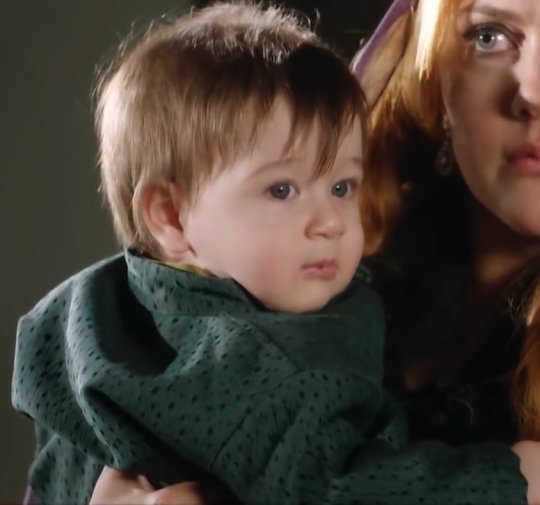
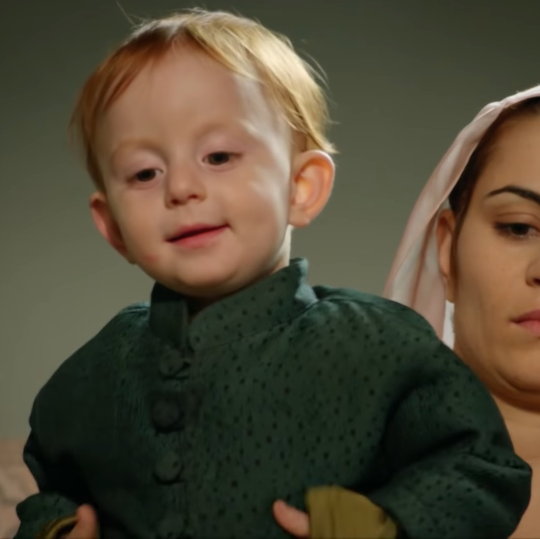





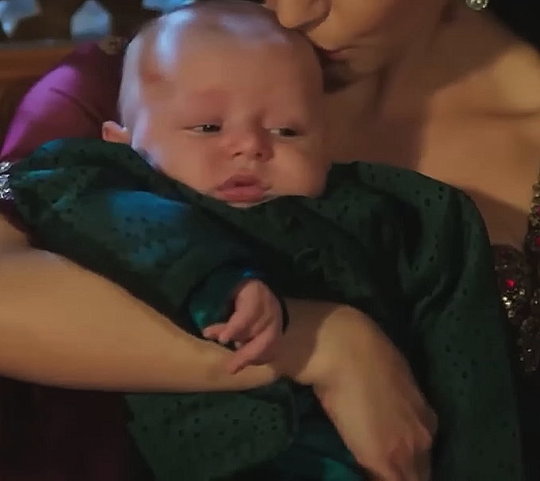
This green shirt with black dots was first worn by Şehzade Mehmed in the tenth episode of the first season of Magnificent Century. It was used again three times in the second season, first on Şehzade Bayezid in the fourteenth episode, then on Şehzade Selim (later Sultan Selim II) in the eighteenth episode and lastly on Şehzade Cihangir in the the twenty-ninth episode. The shirt was also worn twice in the fourth season by Şehzade Murad (later Sultan Murad III) and Şehzade Bayezid's son Mehmed in the eleventh and thirty-fourth episode, respectively.
Magnificent Century: Kösem used the shirt three times during its first season on Şehzade Osman (later Sultan Osman II), Şehzade Mehmed and Şehzade Ibrahim (later Sultan Ibrahim) in the fifteenth, twentieth and twenty-first episodes.
#Muhteşem Yüzyıl#Muhteşem Yüzyıl: Kösem#Magnificent Century#Magnificent Century Kösem#Magnificent Century Kosem#period drama#costume drama#historical drama#Şehzade Mehmed#Sehzade Mehmed#Şehzade Mehmed (Son of Hürrem)#Şehzade Bayezid#Sehzade Bayezid#Şehzade Bayezid (Son of Hürrem)#Şehzade Selim#Sehzade Selim#Selim II#Şehzade Selim (Son of Hürrem)#Şehzade Murad#Sehzade Murad#Şehzade Murad (Son of Nurbanu)#Murad III#Şehzade Mehmed (Son of Şehzade Bayezid)#Şehzade Osman#Sehzade Osman#Osman II#Şehzade Osman (Son of Mahfiruze)#Şehzade Mehmed (Son of Kösem)#Ibrahim I#Şehzade Ibrahim
19 notes
·
View notes
Photo








the known grandchildren of Handan Valide Sultan -- requested by anon
#history#historyedit#ottoman history#osman ii#sehzade mehmed son of ahmed i#ayse sultan daughter of ahmed i#fatma sultan daughter of ahmed i#gevherhan sultan daughter of ahmed i#hanzade sultan daughter of ahmed i#murad iv#sehzade bayezid son of ahmed i#sehzade huseyin son of ahmed i#sehzade kasim son of ahmed i#atike sultan daughter of ahmed i#sehzade suleyman son of ahmed i#ibrahim i#abide sultan daughter of ahmed i#ottomanladiesedit
261 notes
·
View notes
Text
Sultanate of Women (4/7)
Safiye Sultan (c. 1550 – 1621)
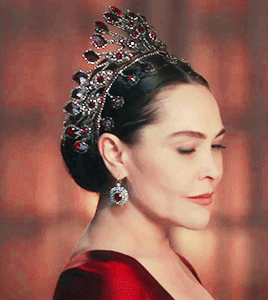
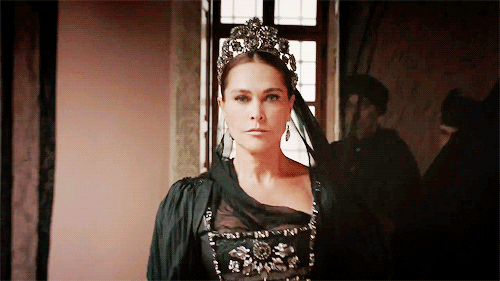

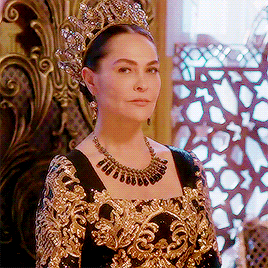
Safiye Sultan parents are not known
Haseki Sultan of Sultan Murad Ill, Valide Sultan of Sultan Mehmed Ill, and Buyuk Valide Sultan of Sultan Ahmed I
Mother of Sultan Mehmed Ill, Sehzade Mahmud, Humasah Sultan, Ayse Sultan, Fatma Sultan, Mihrimah Sultan, Sehzade Yahya (possibly).
Grandmother of Sehzade Selim, Sehzade Suleyman, Sehzade Mahmud, Sultan Ahmed I, Sultan Mustafa, Sehzade Cihangir, Sehzade Osman, Sah Sultan, Hatice Sultan, Sultanzade Mahmud, Sultanzade Hasan Bey, Marice, and Elena.
Mother-in-law of Handan Sultan, Halime Sultan, Nigar Mustafazade Mehmed Pasha, Serdar Ferhat Pasha (?), Damat Ibrahim Pasha,Yemisci Hasan Pasha, Güzelce Mahmud Pasha, Damad Halil Pasha, Damad Cafer Pasha, Damad Hizir Pasha, Mirahur Ahmed Pasha, Gerkes Mehmed Ali Pasha, and Anna Caterina of Drisht (?)
Fun Fact For Newbies: Safiye Sultan was the first women of the Sultanate of Women to be Haseki Sultan, Valide Sultan, and Buyuk Valide Sultan. Safiye Sutan also lived through 6 Sultan reigns: Sultan Suleiman, Sultan Selim II, Sultan Mehmed III, Sultan Ahmed I, Sultan Mustafa I, and Sultan Osman II.
32 notes
·
View notes
Photo






requested: History of Mahfiruz Hatice Sultan
105 notes
·
View notes
Text
The scene where Kosem goes back in to confront Halime,who told her she'd killed all her sons, and then all 6 of the very much alive Sehzades come in after her?
Stunning.
Absolutely amazing.
Complete awesome on Kosem's part. I loved it so much.
And the way Mehmet and Osman immediately grab their little brothers and pull them in protecting them when they drag poor Mustafa out? God that hurts my heart.
10 notes
·
View notes